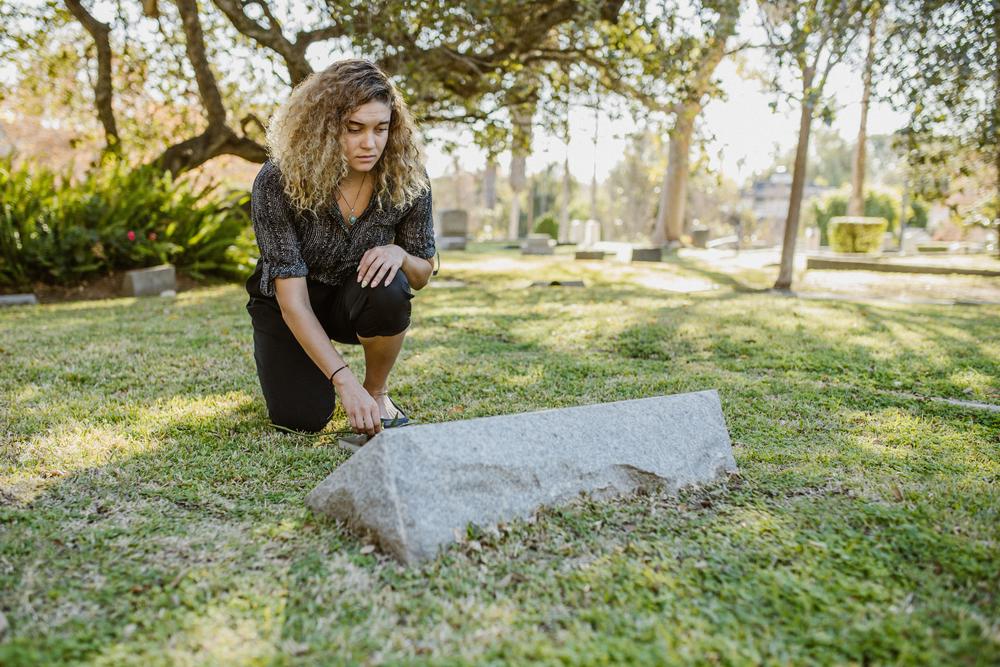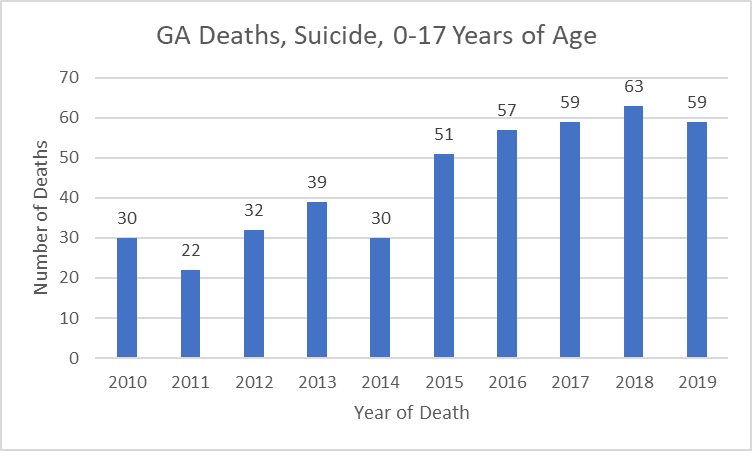
By: Ellen Eldridge
#Behavioralhealth experts say one good thing about the ongoing #COVID-19 #pandemic is the light it’s shined on existing problems, including #mentalhealth. GPB’s Ellen Eldridge reports on some possible solutions.

The #CentersforDiseaseControlandPrevention recently reported that #suicide was the 12th leading cause of death in the #UnitedStates in 2020.
The Pew Charitable Trusts recently launched a project aimed at reducing #suicide rates by making risk assessment a part of routine hospital visits.
Evidence-based screening tools exist that can help health care providers quickly and easily identify #patients at risk for #suicide, but they’re not widely used, said Kristen Mizzi Angelone, a senior manager with the Trusts’ #SuicideRisk Reduction Project.
#Suicide is preventable, Angelone said, and universal assessment of #suiciderisk would save lives.
“We’re really focusing on the health care system right now because statistics show that about half of people who die by #suicide have interacted with the health care system within a month of their deaths,” Angelone said. “So we know that this is a crucial intervention point to identify people who may be at risk of #suicide.”
#Suicide is not a new concern, but the #coronavirus #pandemic is exacerbating all #mentalhealth and #substanceusedisorders.
A record number of people overdosed and died nationwide in the 12-month period ending in January 2021, according the #CentersforDiseaseControlandPrevention, including more than 1,900 Georgians. That is a 38.8% increase over state data from the previous year, which was higher than the national average of about 31%.
The numbers are likely underreported.
When Georgia released its first revenue report after the #pandemic took hold, tax collections from alcohol sales had risen 13%.
The Georgia Council on #SubstanceAbuse said people in #isolation due to the #pandemic are more likely to experiment with addictive substances for the first time, and that people in recovery are at risk of relapsing when forced to avoid social activities. That includes in-person recovery meetings.
MORE: This Is What Happens When Georgians Experience #MentalHealth Or Addiction Crisis
The opposite of addiction is connection, said Jeff Breedlove, the Council’s spokesman.
“It’s happening already and it’s only going to get worse before it gets better,” he said of the problem.
#Suicide is an urgent public health issue across the #UnitedStates, affecting people across #urbanareas, #ruralareas, and all #racial and #ethnic groups, Angelone said.
Rates of #suicide have increased dramatically over the last 20 years, especially among #veterans and people who identify as #LGBTQ.
RELATED: A #suicide epidemic is killing Georgia’s #firstresponders. Help from lawmakers is slow in coming
#James Donaldson notes:
Welcome to the “next chapter” of my life… being a voice and an advocate for #mentalhealthawarenessandsuicideprevention, especially pertaining to our younger generation of students and student-athletes.
Getting men to speak up and reach out for help and assistance is one of my passions. Us men need to not suffer in silence or drown our sorrows in alcohol, hang out at bars and strip joints, or get involved with drug use.
Having gone through a recent bout of #depression and #suicidalthoughts myself, I realize now, that I can make a huge difference in the lives of so many by sharing my story, and by sharing various resources I come across as I work in this space. #http://bit.ly/JamesMentalHealthArticle
Order your copy of James Donaldson’s latest book,
#CelebratingYourGiftofLife:
From The Verge of Suicide to a Life of Purpose and Joy
#Suicide was the 12th leading cause of death in 2020, the #CDC reported.

#Youth suicides increased in 2015 and remained at the higher number for the following four years.
Credit: Georgia Vital Records and Office of Health Indicators for Planning
For Georgians between ages 10 and 17, the rate of completed suicides has been 1.8 times higher during the past five years compared to the prior five-year period.
Over the next two years, the #SuicideRisk Reduction Project plans to work closely with a cohort of hospitals, helping them implement changes and overcome obstacles to risk assessment implementation, Angelone said.
They are hoping to bring together about 10 to 12 #rural, urban, large and small hospitals that serve a diversity of #patients, and work with the administrations to implement an expanded set of #suicide care practices.
“At the end of this, we hope to publish the findings of a case study of this experience as an example for other hospitals around the country that are interested in expanding what they’re doing around #suicide,” Angelone said.
Experts have not yet established a baseline of what #suicide care in the #UnitedStates currently looks like, such as exactly how many hospitals have expanded their #suicide screening practices or what those suicide care practices look like across the country.
Angelone said researchers with the #SuicideRisk Reduction Project will conduct a survey this year, hoping to publish findings early in 2023.
The hope is that the cohort of hospitals can serve as a model for hospitals and health systems around the country.
“There is a lot that hospitals and health systems can do to identify these folks [at risk of #suicide] and provide them with the care they need,” Angelone said. “We’re really looking forward to seeing how the next two years go.”
MORE: 988 will be the ‘911’ for #mentalhealth/addiction crisis calls. Georgia preps for the extra load
This summer, Georgia will join the nation in using a single three-digit crisis hotline: 988 is meant to be the “911” of #behavioralhealth, said Judy Fitzgerald, the commissioner of the Department of #BehavioralHealth and Developmental Disabilities.
Establishing 988 for #suicideprevention and #mentalhealthcrisisservices will make it easier for Georgians in crisis to access the help they need and decrease the #stigma surrounding #suicide and #mentalhealth.
The 988 emergency line goes live July 16.
“This is probably one of the largest and most transformative initiatives that I’m going to experience in my lifetime in #behavioralhealth,” Fitzgerald said.
If you or someone you love is experiencing a #mentalhealth emergency, call Georgia’s current Crisis Access Line at 1-800-715-4225.





